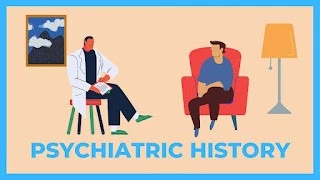History of psychology
Test preparation
Clinical psychology, Cognitive psychology, Developmental psychology, Early history Psychology, Evolutionary psychology, Fields or Scope of Psychology, Forensic psychology, Health psychology, History and Scope of psychology, Modern history Psychology., Neuropsychology, Occupational Psychology, Scope in world of psychology, Scope of Psychology in Pakistan, Social Psychology, What is Psychology?
Usman Shoukat
0 Comments
Introduction and scope of psychology| Scope in world
Introduction
Introduction:
The word psychology comes from two Greek Words Psyche, meaning “spirit” or “soul”. And the second part of the word “psychology” comes from logic, which refers to “study” or “research”. So, that psychology is the study of spirit or soul. The Latin word psychology was first used by the Croatian humanist and Latinist Marko Marulić in his book entitled “Psychology on the Nature of the Human Soul” in the late 15th or early 16th century. The dictionary refers to the word Psychology, which deals with the soul.
History of psychology
Early history Psychology
Aristotle considers psychology to be “The branch of science that studies the soul and its properties “, but he thinks that the soul is the general principle of life, so this psychology studies all living beings, and not only considers it to be minds, human beings.
Plato suggested that “Human psychology is the seat of all knowledge, and the human mind was imprinted with all the knowledge it needed “. According to plato learning was a matter of unlocking and utilizing this built-in knowledge, a process he called anamnesis or you can easily say word history. This history may be psychiatric or medical or case.
Modern history Psychology.
Wilhelm Wundt believed that psychology was the “science of conscious experience” and that trained observers could accurately describe thoughts, feelings, and emotions through a process known as introspection.
William James considers psychology to be the “Conscience of mental life” because James thinks that consciousness is what makes mental life possible.
Sigmund Freud advocates the importance of the unconscious mind, and the primary premise of Freudian theory is that “The unconscious mind directs or controls behavior to a greater extent than people realize.” In fact, the goal of psychoanalysis is to make the unconscious conscious.
According to J.B. Watson, psychology should be “The science of observable behavior.”
Bermúdez (2005) defines philosophy of psychology as “The systematic study of the interplay between philosophical concerns in the study of cognition.”
Above we have read many definitions of psychology as we know we study according to APA so “Psychology is the scientific study of mind and behavior” according to American Psychological Association. Now this definition is more acceptable to us.
scope of psychology
Fields or Scope of Psychology
There is much more scope of psychology in different fields. There is no fixed classification but here are some as below.
Clinical psychology
Clinical psychology integrates science, theory, and practice related to understanding, predicting, and troubleshooting mental health problems, disabilities, and discomfort. These psychologists work on the individual’s intellectual, emotional, biological, psychological, social and behavioral aspects of a person at various levels of life.
This type of psychology helps to understand, prevent and alleviate psychological distress or dysfunction and promotes the well-being and personal development of each individual.
Psychological assessment and psychotherapy are the main practice of a clinical psychologist, but clinical psychologists may also be involved in training for research purposes as well as forensic testimony.
Cognitive psychology
Cognitive psychology examines internal mental processes such as problem solving, memory, learning, and languages. This type of psychology focuses on how people think, perceive, remember and learn. It is closely related to neuroscience, philosophy and linguistics.
This psychology deals with how people acquire, process and store information. Its practical applications are to improve memory, increase decision-making accuracy or how to set up educational programs to support learning.
scope of psychology
Developmental psychology
It is the scientific study of the systematic psychological changes that an individual experience throughout your life, often referred to as human development. This focuses not only on infants and small children, but also on teenagers, adults and older people. developmental psychology studies a whole range of factors including motor skills, problem solving, moral understanding, language acquisition, emotions, personality, self-concept, and identity formation. This is also a view of innate mental structures versus learning through experience or how a person’s characteristics interact with environmental factors and how this affects development.
Evolutionary psychology
Evolutionary psychology works on how human behavior, such as language, has been affected by psychological adaptations during evolution.
An evolutionary psychologist believes that many human psychological traits are adaptive in that they allow us to survive for thousands of years.
Forensic psychology
In the Forensic psychology involves the application of psychology to the investigation of crimes. Forensic psychologists practice psychology as a science within the criminal justice system and civil courts. This includes assessing psychological factors that may influence incidents and behavior and presenting the findings to the court.
Health psychology
Health psychology is also called behavioral medicine or medical psychology. Psychology looks at how behavior, biology, and social context affect disease. Psychologists focus on what affects the person as a whole and their state of health. This includes socioeconomic status, education and background, and behavior. Health psychologists typically work alongside other medical professionals in clinical settings.
scope of psychology
Neuropsychology
This Neuropsychology deals with the structures and functions of the brain related to behavior and psychological processes. Neuropsychology may involve evaluation, including recording of electrical activity in the brain, and when the disorder involves brain lesions. A neuropsychological evaluation is used to determine whether behavioral problems may develop after brain injury, such as brain injury, is suspected or diagnosed. B. Stroke.
The results may enable physicians to offer treatments that may help individuals achieve possible improvement in their developed cognitive deficits.
Occupational Psychology
Occupational or organizational psychologists deal with evaluating and recommending people’s performance in work and training.
Helps organizations find ways to work more effectively and understand how people and groups behave in the workplace.
This information helps improve effectiveness, efficiency, job satisfaction and employee retention.
Social Psychology
Social Psychology uses scientific methods to understand how social influences affect human behavior. It attempts to explain how feelings, actions, and thoughts are influenced by the real, imagined, or implied presence of other people.
Social psychologists study group behavior, social cognition, nonverbal behavior, adaptation, aggression, prejudice, and leadership. Social cognition and social interaction are considered key to understanding social behavior.
Share this content:












Post Comment